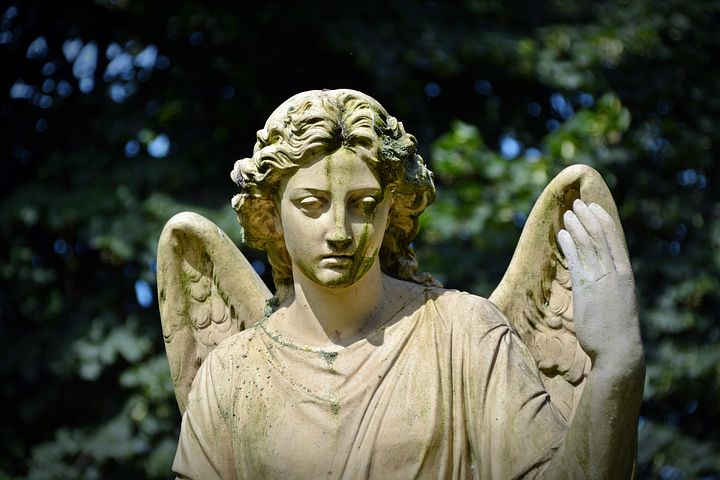The theme of a philosophy conference that I attended a couple of years ago was “Hope in Exile.” I don’t remember many of the details of the conference, nor do I recall the content of any of the papers that were read. But the title of the conference has stayed with me, because I do not believe that hope has been a scarcer commodity at any time during my adult years than it is right now.

In Autumn, acclaimed Scottish author Ali Smith’s 2016 post-Brexit novel, a mother expresses to her daughter the weariness and malaise that many people currently feel.
I’m tired of the news. I’m tired of the way it makes things spectacular that aren’t, and deals so simplistically with what’s truly appalling. I’m tired of the vitriol. I’m tired of the anger. I’m tired of the meanness. I’m tired of the selfishness. I’m tired of how we’re doing nothing to stop it. I’m tired of how we’re encouraging it. I’m tired of the violence there is and I’m tired of the violence that’s on its way, that’s coming, that hasn’t happened yet.
Persons on all sides of the political spectrum share this general fatigue. Whether pro-Trump or anti-Trump, whether one voted for or against Brexit, optimism and hope are becoming more and more difficult to sustain.
I’m tired of liars. I’m tired of sanctified liars. I’m tired of how those liars have let this happen. I’m tired of having to wonder whether they did it out of stupidity or did it on purpose. I’m tired of lying governments. I’m tired of people not caring whether they’re being lied to any more. I’m tired of being made to feel this fearful. I’m tired of animosity.
Where is hope to be found? One place to look is in the middle of the darkest text in the Jewish scriptures.
Of the many memorable liturgies I experienced with the monks of St. John’s Abbey during my sabbatical months at the Collegeville Institute almost a decade ago, the most striking was Good Friday morning prayer. At 7 in the morning, the context for the most somber day in the Christian calendar is set as a solitary monk chants the entire book of Lamentations. A litany of five poetic dirges over the destruction of Jerusalem, Lamentations is traditionally attributed to the prophet Jeremiah. The poems are relentlessly bleak: God does not speak, the degree of suffering is presented as undeserved, and expectations of future redemption are minimal.
But just about half way through the poems, Jeremiah comes up briefly for air.
I will call this to mind, as my reason to hope:
The favors of the Lord are not exhausted, his mercies are not spent;
They are renewed each morning, so great is his faithfulness.
My portion is the Lord, therefore will I hope in him.
Good is the Lord to one who waits for him, to the soul that seeks him;
It is good to hope in silence for the saving help of the Lord.
The favors of the Lord are renewed every morning (sort of like Presidential tweets)—but we have to practice identifying and relying on them. Here are a couple reasons to hope that remind me, once I stop yelling WTF!!! at the television screen, that while the news cycle comes and goes, the divine is always present.
A friend from Canada visited my wife Jeanne and me last summer with her seven-month-old son in tow. Jeanne and I are grandchild-less (although we do have grand-dogs), and there is little sign of grandkids in the near (or even distant) future. Our dachshunds had never encountered a baby human, and were not quite sure whether Eliot was a noisy visitor from another planet or the strangest looking dog they ever saw.
As Eliot led Anita through his daily routine of sleeping, eating, smiling, crying, and checking out the world that is still new to him, she occasionally asked me if having Eliot around brought back memories. To be honest, it really didn’t—my sons are in their middle thirties and my sixty-plus year old memory banks have not preserved a lot of the daily routine of when they were Eliot’s age.
But what Eliot’s visit did put me in mind of was exactly the sort of thing Jeremiah wrote about. The mystery of new life, the wonder and expectations that are attached to a new human being, the miracle of a baby’s smile lighting up the room moments after the same baby’s crying had everyone scrambling for solutions—these are some of the divine favors that are renewed every morning. There is nothing more full of hope and promise than a new human being.
Jeanne had several things planned to do with our guests during their visit; one was going to “The Butterfly Place,” a butterfly conservatory a bit over an hour away in southern Massachusetts. The Butterfly Place was filled both with brightly colored flying insects and a remarkably diverse collection of human beings, all of whom were enthralled by the little instances of gratuitous beauty flitting about.
Each of us was gifted with a butterfly landing on us; the Darwin-lover in me reveled in the spectacular patterns and colors on display which, as is so often the case in the natural world, seem far beyond what any reasonable or rational artist would ever have thought up. They aren’t for anything. They only live for a couple of weeks, then are gone—the embodiment of gratuitous beauty if there ever was one.
Marilynne Robinson notes that even though it is fashionable—and sometimes justifiable—to be culturally pessimistic, such pessimism “has the negative consequence of depressing the level of aspiration, the sense of the possible.” But, she adds, “there are always as good grounds for optimism as for pessimism—exactly the same grounds, in fact—that is, because we are human.” For every hope-dissolving event and action, a reason to be hopeful can be found, if one knows where to look and what to look for.
The wonder of new life. The gratuitous beauty of the natural world. The mystery of being human. These are some of the places to encounter divine favors every day—even on those days that we read the full book of Lamentations, or when neo-Nazis, white supremacists, racists, sexual predators, and unhinged politicians seek to dominate with their noise and vitriol. As we wait for God, there are reasons to be hopeful. The mercies of the Lord truly are renewed every morning.













